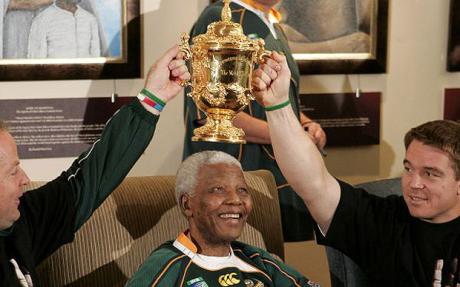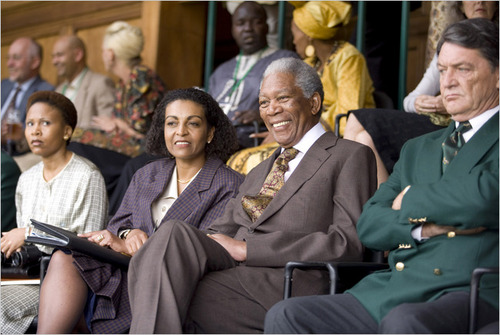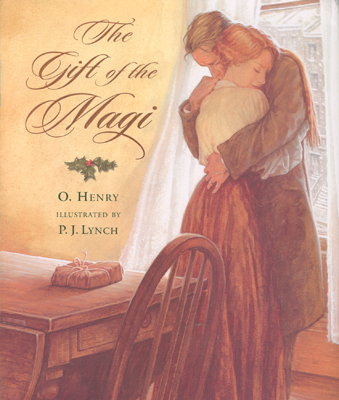I have spent a fair amount of time in the beautiful and strife filled country of South Africa. I have met some of the principles who fought against apartheid, such as the Methodist Bishop Peter Storey. I have dear friends who are Afrikans such as Jan van der Watt. And I was there not long after the Springboks pulled probably the greatest upset in World Cup Rugby history. I know the story well, and this movie captures a good deal of the spirit of the people of South Africa well.
Honestly South Africa is about the most religious country I have ever spent time in. It also has more born again Christians per capita than America. I have done the lecture tours, I’ve spent time in Pretoria, Cape Town, Stellenbosch, Bloomfontein, and have loved almost everything about the country— except the besetting sin of racism and its horrible consequences. I thank God regularly for men like Mandela and Tutu and Storey. Where else in the world has there been a Truth and Reconcliation Commission where crimes could be admitted—– and forgiven, and the country moves on? What a stark difference between what Mandela and these other men set in motion compared to the aftermath of WWII with the Nuremburg Trials. In South Africa broke the cycle of violence and hatred and racism— with forgiveness and love—- and one more thing– with inspiration. A people without hope, without inspiration are capable of anything.
As the review in the NY Times this morning by A.O. Scott says, Clint Eastwood, singularly among directors, has focused his movies on the issue of vengeance (think the ‘Unforgiven’ or Gran Torino, or the Changeling etc.), or its opposite— forgiveness. Invictus is focused on the latter. And I have to say this may be the most powerful of all those films. Morgan Freeman who has given a lifetime of great performances gives the performance of a lifetime in this movie. It is best actor stuff, as he absolutely embodies Mandela in this movie– the man, his spirit, his gestures, his heart, his heartbreak. This story is full of pathos, and Freeman knows how to bring it out in the right way.
The title of the movie is in fact the title of a poem that helped Mandela keep hope alive during his 27 years in prison. Here it is—
Invictus
also known as… I. M. R. T. HAMILTON BRUCE
(1846-1899)
by William Ernest Henley (1849-1903)
Composed circa 1875.
Out of the night that covers me,
Black as the Pit
from pole to pole,
I thank whatever gods may be
For my unconquerable
soul.
In the fell clutch of circumstance
I have not winced
nor cried aloud.
Under the bludgeonings of chance
My head is bloody,
but unbowed.
Beyond this place of wrath and tears
Looms but the
Horror of the shade,
And yet the menace of the years
Finds, and shall
find, me unafraid.
It matters not how strait the gate,
How charged with
punishments the scroll,
I am the master of my fate:
I am the captain of
my soul.
It is a powerful poem, with memorable lines, and it is about the unquenchable human spirit that can overcome, even overcome evil with good. This movie is about that sort of overcoming. But it is not just about the resilient human spirit, it is about God, the God who inspires forgiveness and mercy and compassion, not the God of Jihad and revenge, by which I mean the God of Love, the God of Jesus, the God who Jesus was.
If you are like me, you will find yourself weeping at this movie, weeping to see merciful non-Christians more Christ-like than the Christians. But this movie is by no means just a tear-jerker. It is also an exhiliarating film about the relationship of two men— the captain of the Springboks— Francois Pienaar, a white Afrikaner, and Mandela. Matt Damon has proved before this film that he is a world class actor, but he shows it again in this film, even mastering, at least to my ear, the difficult Afrikans accent as he plays Francois.
This two hour film is not a perfect film. We could have wished for a little more story and back story. A bit more about the Christian faith of both black South Africans and Afrikans (see e.g. the prayer at the end of the World Cup final match) a bit more about the Truth and Reconciliation Commssion.
The rugby scenes are vivid and compelling, but for Americans who hardly know the ‘hooligans game played by gentleman’ as the movie calls it, it will look like a mildly interesting field goal kicking contest. One thing Eastwood does get right— rugby, played without pads makes American football look like a less brutal game.
Mandela was a wise man– he knew that sport had a chance to begin to unite and heal his nations wounds. And he deserves full marks for playing that card at just the right moment. Unlike ‘the Blind Side’ which is a sports movie with a bit of a moral, this is a moral movie that just happens to focus on rugby. I would urge you to go see this movie, and see what you think. For me it revealed once more how triumph can come after, and even through tragedy when the Gospel of forgiveness is actually believed, and lived out.



